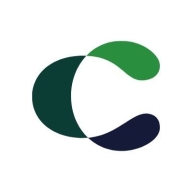

Veracode and Contrast Security Assess compete in the software security platform category. Contrast Security Assess often has the upper hand due to its robust features which users find worth the cost.
Features: Veracode offers thorough vulnerability scanning, effective integration capabilities across platforms, and comprehensive coverage. Contrast Security Assess provides dynamic testing capabilities, real-time insights, and seamless integration into development pipelines, making it ideal for continuous integration environments.
Room for Improvement: Veracode could improve performance speed, offer more scanning flexibility, and address user feedback regarding its capabilities. Contrast Security Assess needs better documentation, improvements in reporting functionalities, and intuitive remediation guidance to support users effectively.
Ease of Deployment and Customer Service: Veracode is praised for easy deployment and reliable customer service, offering a straightforward user experience. Contrast Security Assess has more complex deployment but offers proactive support that helps users even after setup, compensating for initial challenges.
Pricing and ROI: Veracode is considered cost-effective with competitive initial setup costs, providing a solid ROI with scalable options. Contrast Security Assess presents a higher initial cost but is seen as valuable due to its comprehensive feature set resulting in higher long-term value.
| Product | Market Share (%) |
|---|---|
| Veracode | 4.9% |
| Contrast Security Assess | 1.3% |
| Other | 93.8% |
| Company Size | Count |
|---|---|
| Small Business | 2 |
| Midsize Enterprise | 3 |
| Large Enterprise | 6 |
| Company Size | Count |
|---|---|
| Small Business | 69 |
| Midsize Enterprise | 44 |
| Large Enterprise | 115 |
Contrast Security is the world’s leading provider of security technology that enables software applications to protect themselves against cyberattacks, heralding the new era of self-protecting software. Contrast's patented deep security instrumentation is the breakthrough technology that enables highly accurate assessment and always-on protection of an entire application portfolio, without disruptive scanning or expensive security experts. Only Contrast has sensors that work actively inside applications to uncover vulnerabilities, prevent data breaches, and secure the entire enterprise from development, to operations, to production.
Veracode is a leading provider of application security solutions, offering tools to identify, mitigate, and prevent vulnerabilities across the software development lifecycle. Its cloud-based platform integrates security into DevOps workflows, helping organizations ensure that their code remains secure and compliant with industry standards.
Veracode supports multiple application security testing types, including static analysis (SAST), dynamic analysis (DAST), software composition analysis (SCA), and manual penetration testing. These tools are designed to help developers detect vulnerabilities early in development while maintaining speed in deployment. Veracode also emphasizes scalability, offering features for enterprises that manage a large number of applications across different teams. Its robust reporting and analytics capabilities allow organizations to continuously monitor their security posture and track progress toward remediation.
What are the key features of Veracode?
What benefits should users consider in Veracode reviews?
Veracode is widely adopted in industries like finance, healthcare, and government, where compliance and security are critical. It helps these organizations maintain strict security standards while enabling rapid development through its integration with Agile and DevOps methodologies.
Veracode helps businesses secure their applications efficiently, ensuring they can deliver safe and compliant software at scale.
We monitor all Application Security Tools reviews to prevent fraudulent reviews and keep review quality high. We do not post reviews by company employees or direct competitors. We validate each review for authenticity via cross-reference with LinkedIn, and personal follow-up with the reviewer when necessary.